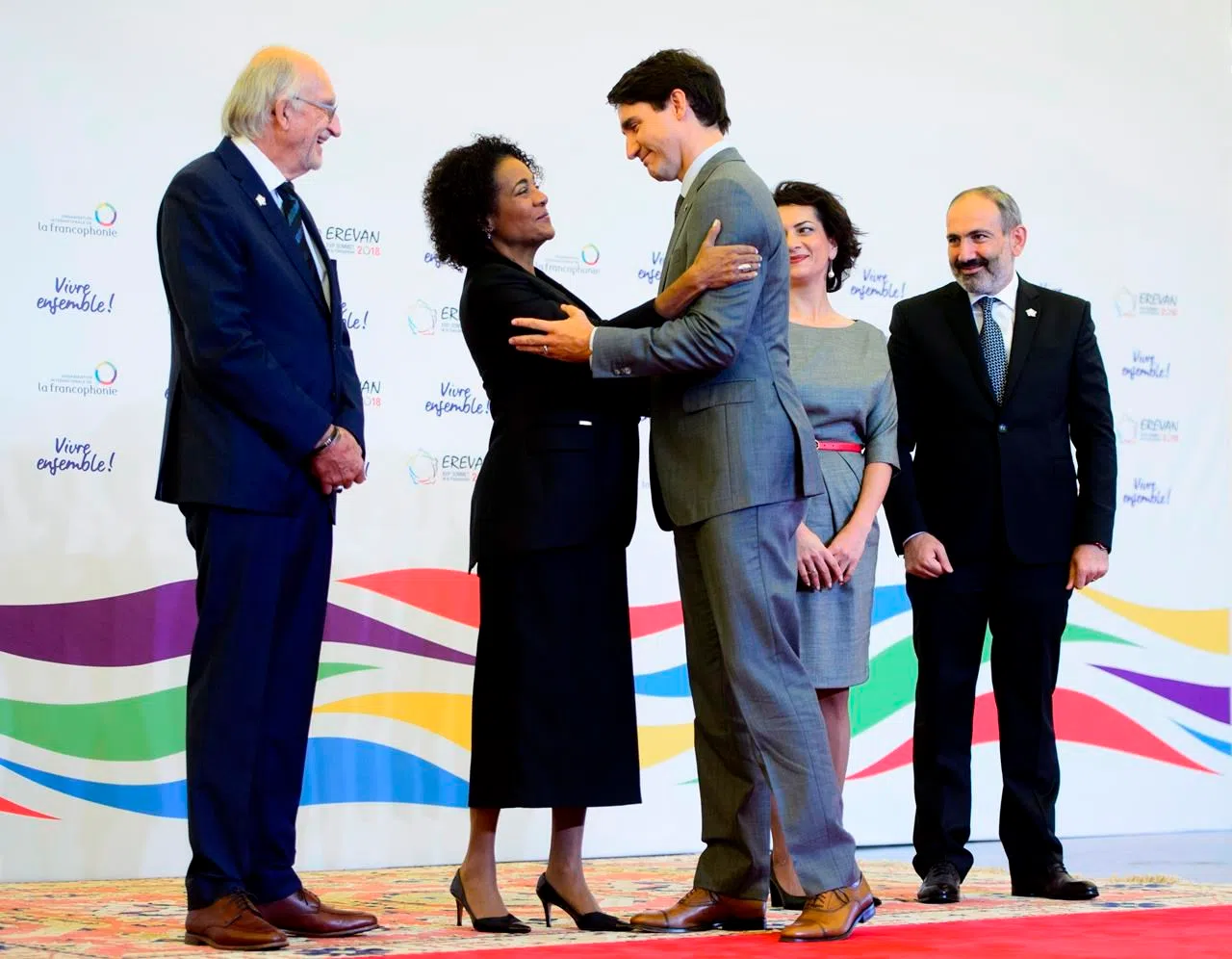
Michaelle Jean makes final pitch to keep top post as Francophonie summit opens
YEREVAN, Armenia — Michaelle Jean made a public plea to hold on to her post as secretary general of la Francophonie Thursday, urging member nations not to allow the defence of rights and democracy to take a back seat to partisan ambitions.
For Jean, the address to the opening session of the summit of la Francophonie was a final stand ahead of a closed-door meeting of members Friday to choose the next secretary general. Her words were clearly aimed at her rival for the post, Rwandan Foreign Affairs Minister Louise Mushikiwabo.
“At a moment when we march toward the 50th anniversary of la Francophonie, lets ask ourselves here in Yerevan, in all conscience and in all responsibility, on which side of history do we want to be,” Jean said.
“Are we ready to accept that international organizations are used for partisan purposes?” Jean asked. “Are we ready to accept that democracy, rights and freedoms are reduced to mere words, that we make them meaningless in the name of realpolitik?”

